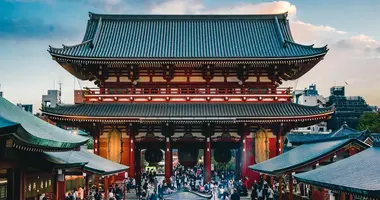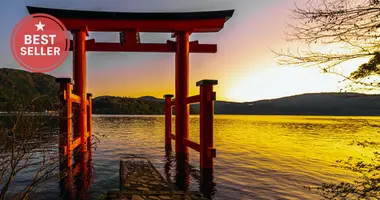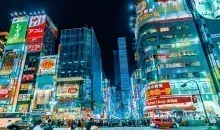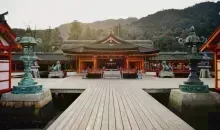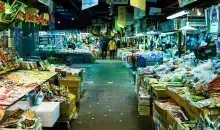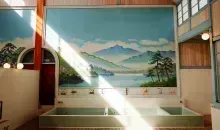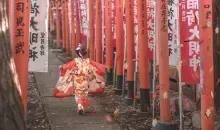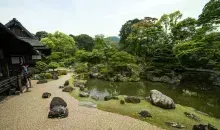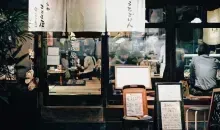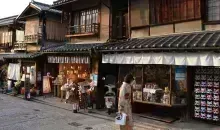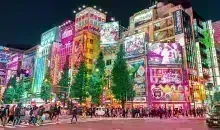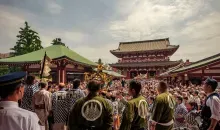Yushukan museum: Japan's controversial military museum
- Published on : 27/04/2024
- by : Japan Experience
- Youtube

Zero Fighter
The Yushukan is a military and war museum located within Yasukuni Shrine in Tokyo, Japan. It is dedicated to the souls of Japanese soldiers who died fighting for the Emperor, including convicted war criminals. The museum has attracted controversy for its revisionist portrayal of Japan's wartime actions and militaristic past, straining relations with China, South Korea, and other countries that suffered under Japanese occupation.
History and origins of the Yushukan museum
The Yushukan museum was first established in 1882 to preserve and display artifacts of the Imperial Japanese Army from the Meiji Restoration era. It was expanded over the years following the First Sino-Japanese War, Russo-Japanese War, and World War I as the collection grew. The museum was damaged in the 1923 Great Kanto Earthquake and had to be rebuilt, reopening in a new "Imperial crown" style building in 1932.
During World War II, the museum again suffered damage from air raids in 1945 and was forced to close when the post-war Allied Occupation repealed the order to preserve military artifacts. The museum collection was put on display again in 1961 and the Yushukan fully reopened in 1986 after renovations. In 2002, the museum was significantly expanded with a new layout, cinema theater and indoor display for the Zero fighter aircraft and other large artifacts.
Exhibits and collections on display
The exhibits at the Yushukan museum include an extensive collection of Japanese military artifacts, documents and memorabilia from the late 19th century through the end of World War II. Some of the major items on display include:
- First floor exhibits: A6M Zero fighter aircraft, C56 31 steam locomotive from the Thai-Burma Railway (known as the "Death Railway" built with forced labor), soldiers' personal effects and mementos
- Second floor exhibits: swords, armor, guns, war flags, portraits and photographs of Japanese soldiers enshrined at Yasukuni
- Other facilities: small cinema theater showing films about the shrine and modern Japan, museum gift shop selling nationalist books and souvenirs, cafe with navy recipe menu items

Yushukan War Memorial Museum in the grounds of Yasukuni Shrine, Tokyo
Controversial historical revisionism at the Yushukan
The Yushukan museum has garnered significant controversy for its historically revisionist and nationalist portrayal of Japan's wartime past. Critics accuse the museum of whitewashing or glorifying Japanese imperialism and militarism. Controversial elements include:
- Accounts depicting Imperial Japan's military campaigns as noble endeavors to liberate Asia from Western colonialism, with Japanese soldiers being welcomed as heroes
- Portrayal of Japan being "forced" into WWII by U.S. economic and military encirclement
- Omission of any mention of Japanese war crimes or atrocities committed in occupied territories in China, Korea and elsewhere
This historical revisionism, and enshrinement of convicted war criminals, has made the Yasukuni Shrine and Yushukan museum a source of diplomatic friction between Japan and its neighbors.

Statue honoring horses that served in the Japanese military at Yasukuni Shrine
Yushukan vs Yasukuni Shrine: a symbol of ultra-nationalist views
While millions of Japanese war dead are honored at Yasukuni, it is the Yushukan museum more so than the shrine itself that embodies a specific revisionist and ultra-nationalist view of history. When Japanese politicians visit Yasukuni, they are seen as endorsing not only paying respects to fallen soldiers but the glorified militaristic past depicted in the museum.
This makes the political impact of official visits extremely controversial, sparking harsh condemnations from China and the Koreas in particular. Comparisons of Yasukuni to other national war memorials like Arlington Cemetery in the U.S. fail to account for the key role the Yushukan museum plays in promoting historical narratives many find offensive and inaccurate.
Visitor experiences and reactions to the Yushukan
For many foreign visitors, the Yushukan museum is a shocking and troubling experience even more so than Yasukuni Shrine itself. Common reactions include:
- Disbelief and anger at the blatant historical inaccuracies and omission of war crimes, with the propaganda extending even to English language exhibits
- A sobering sense of how the influence of right-wing nationalist groups and historical revisionists in Japan remains strong and visible at the museum
- The museum exhibits leaving visitors, especially from countries that suffered under Japanese occupation, justifiably furious at the whitewashing of history
While the shrine itself is solemn and primarily a place to remember fallen soldiers, albeit controversially, the Yushukan is seen as an explicit glorification of militarism and promotion of nationalist ideology.

Statue of the dove of peace outside the Yushukan War Memorial Museum in the grounds of Yasukuni Shrine, Tokyo
The Yushukan museum's place in debates over Japan's remembrance of WWII
The Yushukan war museum reveals the ongoing battles over how Japan confronts and commemorates its militaristic past. The museum's controversial and inflammatory portrayal of history has made it a lightning rod in these debates.
Some have proposed creating an alternative national memorial to honor the war dead, separate from the Yasukuni Shrine and dissociated from the Yushukan's historical revisionism. However, any effort by political leaders to do so would likely face intense pushback from conservative and nationalist groups.
As it stands, the Yushukan museum serves to underscore the sensitivities and challenges Japan faces in handling the history of its wartime aggression and atrocities. Efforts at a more balanced, factual remembrance remain highly fraught over 70 years after the war. The museum reveals just how raw the wounds and divisions are, not only within Japan but with neighboring countries that bore the brunt of Imperial Japan's militarism.
The issues of historical responsibility, remorse and reconciliation spotlighted by the Yushukan continue to weigh heavily on Japan's international relations in Asia. With its provocative presentation of the past and enshrinement of war criminals, the museum embodies the obstacles to achieving a shared understanding of history and moving forward. How Japan chooses to remember and commemorate this dark chapter will have a profound impact on its ability to build true, lasting reconciliation in the region.
For further exploration of this complex topic, consider these additional resources and perspectives:
- Japan Museums
- Budokan - located near Yasukuni Shrine
- Science Museum and Crafts Gallery in nearby Kitanomaru Park
- Chidorigafuchi National Cemetery as a contrasting memorial for unknown soldiers
- The Imperial Palace grounds
- Books on Tokyo Japan covering history and politics












